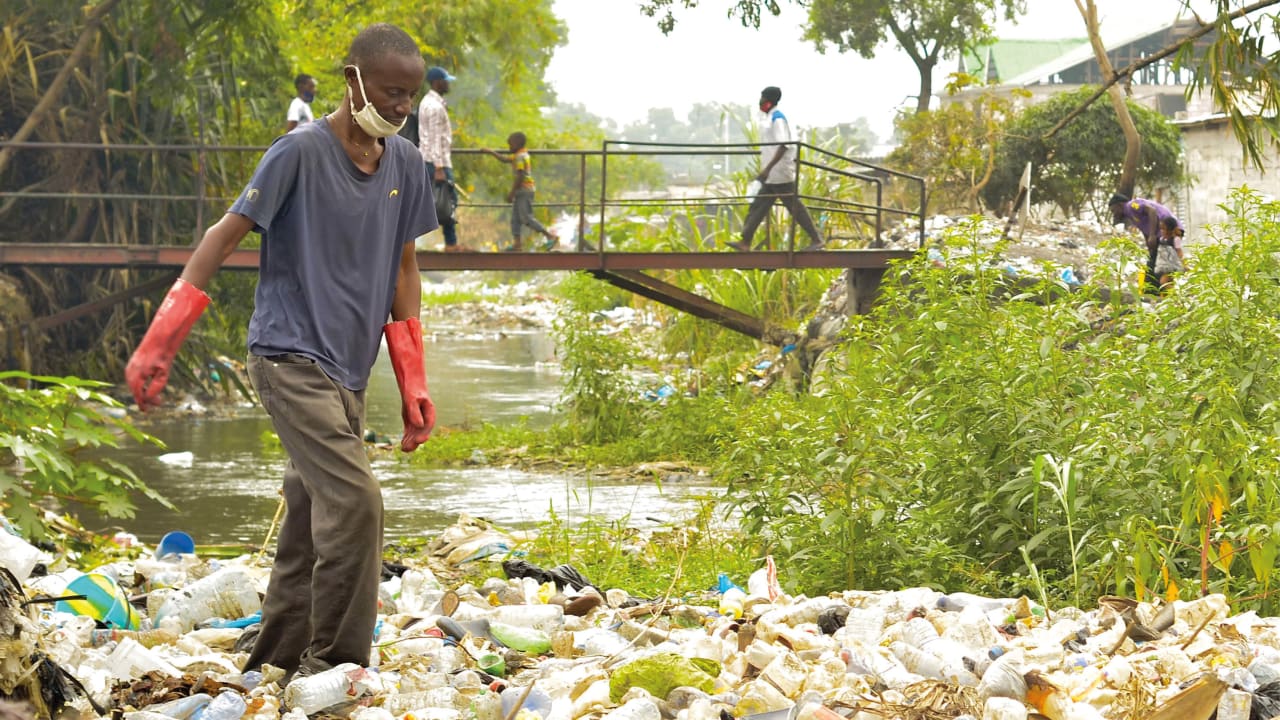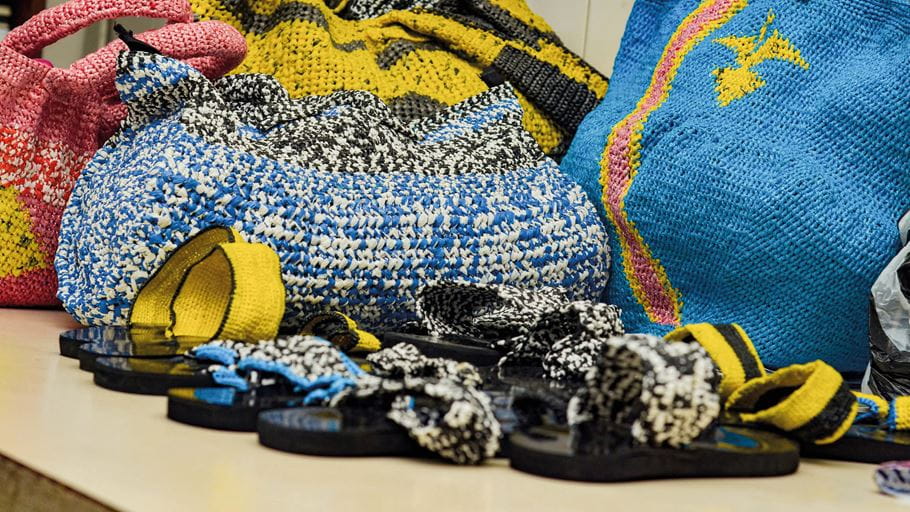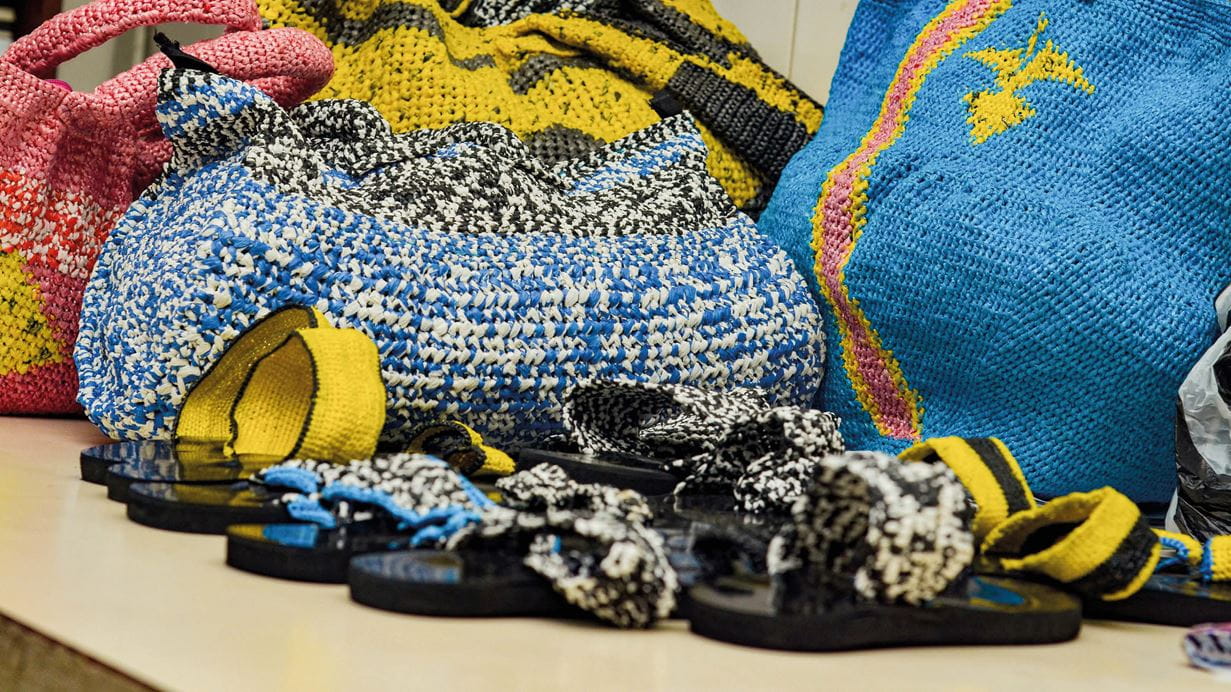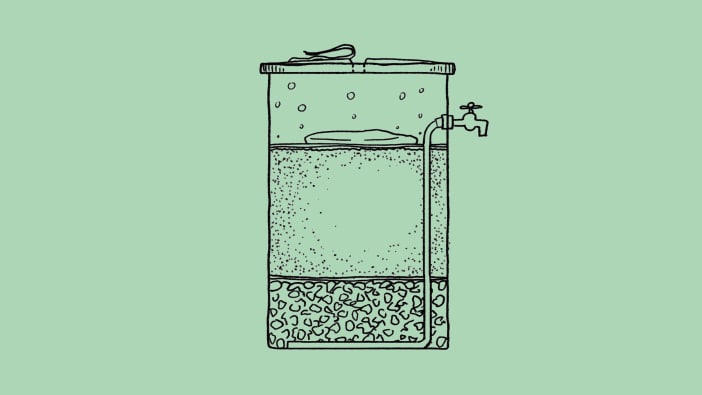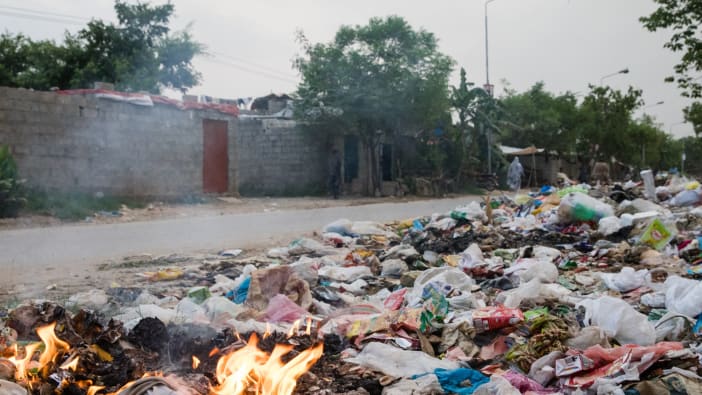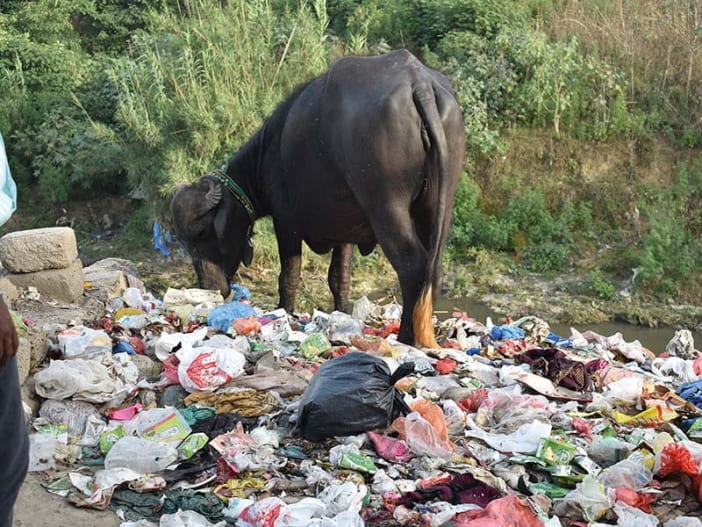Plastic is mouldable, light, strong, waterproof and versatile.
Different forms of plastic can help save energy, reduce food waste and support access to healthcare, safe drinking water and household products.
But after it has been used, this same plastic becomes solid waste. And if it is not managed properly it can pollute the soil, water and air, affecting the health of people, domestic animals, fish and wildlife.
Globally, about 2 billion people do not have access to solid waste collection or recycling. This means they have little option but to dump or burn it.
Plastic pollution
Today, half of all the plastic made is designed to be used only once before being thrown away. For example, water sachets.
These have been both a good and a bad thing in many countries. They provide safe drinking water in small quantities for people who otherwise could not afford it. But the sachets are made from a complicated type of plastic that is almost impossible to recycle in a cost-effective way.


